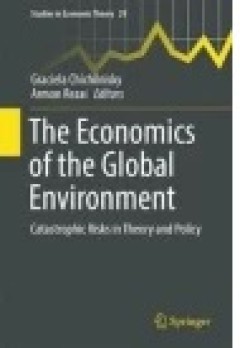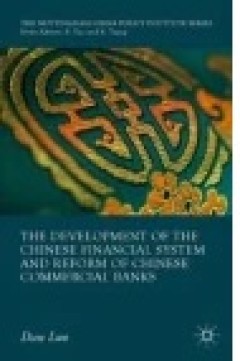Filter by

The European Higher Education Area
Bridging the gap between higher education research and policy making was always a challenge, but the recent calls for more evidence-based policies have opened a window of unprecedented opportunity for researchers to bring more contributions to shaping the future of the European Higher Education Area (EHEA). Encouraged by the success of the 2011 first edition, Romania and Armenia have organised …
- Edition
- -
- ISBN/ISSN
- 978-3-319-20877-0
- Collation
- XLIV, 898
- Series Title
- -
- Call Number
- -

US-China Strategic Competition Towards a New Power Equilibrium
This book examines the nature and consequences of strategic competition between the US and China, which affects the global security landscape and the emerging security architecture across the broader Asia-Pacific region. The author illustrates the evolution of Sino-US security interactions from the anti-Soviet alliance, to temporary marginalization, to eventual strategic competition and examine…
- Edition
- -
- ISBN/ISSN
- 978-3-662-46660-5
- Collation
- XIV, 230
- Series Title
- -
- Call Number
- -

Two Decades of Basic Education in Rural China Transitions and Challenges for…
This book examines how educational change has progressed in three contrasting areas spread across China since 1990, exploring key issues concerning rural education in poor, rich and minority areas. Of the three areas covered in this book, the first is a rich one near Beijing; the second is in the northwest in Shanxi on the Loess plateau; and the third is in Sichuan on the high plateau leading t…
- Edition
- -
- ISBN/ISSN
- 978-981-10-2120-6
- Collation
- 38 b/w illustrations
- Series Title
- -
- Call Number
- -

The Economics of the Global Environment
This is the first book combining research on the Global Environment, Catastrophic Risks and Economic Theory and Policy. Modern economic theory originated in the middle of the twentieth century when industrial expansion coupled with population growth led to a voracious use of natural resources and global environmental concerns. It is uncontested that, for the first time in recorded history, huma…
- Edition
- -
- ISBN/ISSN
- 978-3-319-31943-8
- Collation
- VII, 649
- Series Title
- Studies in Economic Theory
- Call Number
- -

Fair Reflection of Society in Judicial Systems - A Comparative Study
This book addresses one central question: if justice is to be done in the name of the community, how far do the decision-makers need to reflect the community, either in their profile or in the opinions they espouse? Each contributor provides an answer on the basis of a careful analysis of the rules, assumptions and practices relating to their own national judicial system and legal culture. Writ…
- Edition
- -
- ISBN/ISSN
- 978-3-319-18485-2
- Collation
- 2 b/w illustrations
- Series Title
- -
- Call Number
- -

Economic sanctions under international law : unilateralism, multilateralism, …
Since the Second World War, States have increasingly relied upon economic sanctions programs, in lieu of military action, to exert pressure and generally to fill the awkward gap between verbal denunciation and action. Whether or not sanctions are effective remains a point of contention among policymakers. Frequently asked questions include whether any legal order constrains the use of sanctions…
- Edition
- -
- ISBN/ISSN
- 9789462650510
- Collation
- -
- Series Title
- -
- Call Number
- 341

The Development of the Chinese Financial System and Reform of Chinese Commerc…
The Chinese financial sector, despite having been developed at a much later stage compared with other developed nations, has achieved substantial progresses over the past decades. By the end of 2014, a total of 16 commercial banks had been listed on the stock exchanges, exerting strong impact onto the market indices and contributing significantly to the country's sustained economic growth. This…
- Edition
- -
- ISBN/ISSN
- 978-1-137-45466-9
- Collation
- XIII, 247
- Series Title
- The Nottingham China Policy Institute Series
- Call Number
- -

Neighbourhood Policy and the Construction of the European External Borders
This book looks both backward and forward with regard to the European Union’s political strategies towards its neighbouring countries. By bringing together the perspectives of critical geopolitics, policy studies and border studies, it presents a comprehensive review of the European Neighbourhood Policy and how it impacts the ongoing construction of the EU’s external frontiers. Is the EU c…
- Edition
- 1
- ISBN/ISSN
- 978-3-319-18451-7
- Collation
- IX, 201
- Series Title
- GeoJournal Library
- Call Number
- -

Extreme Inequalities in Contemporary Capitalism Should We Be Concerned About…
This book explores the mechanisms by which top incomes are achieved through work in today’s advanced economies and asks to what extent current extreme inequalities are compatible with widely held values of social justice. Reflecting on the heterogeneity of the working rich, the authors argue that very high earnings often result not from heightened competition induced by globalization but rath…
- Edition
- -
- ISBN/ISSN
- 978-3-319-28811-6
- Collation
- 13 b/w illustrations
- Series Title
- -
- Call Number
- -

Applicable Law in Investor–State Arbitration
This book examines the law, national and/or international, that arbitral tribunals apply on the merits to settle disputes between foreign investors and host states. In light of the freedom that the disputing parties and the arbitrators have when designating the applicable law, and because of the hybrid nature of legal relationship between investors and states, there is significant interplay bet…
- Edition
- -
- ISBN/ISSN
- 9780199656950
- Collation
- -
- Series Title
- -
- Call Number
- 348 KJO a
 Computer Science, Information & General Works
Computer Science, Information & General Works  Philosophy & Psychology
Philosophy & Psychology  Religion
Religion  Social Sciences
Social Sciences  Language
Language  Pure Science
Pure Science  Applied Sciences
Applied Sciences  Art & Recreation
Art & Recreation  Literature
Literature  History & Geography
History & Geography